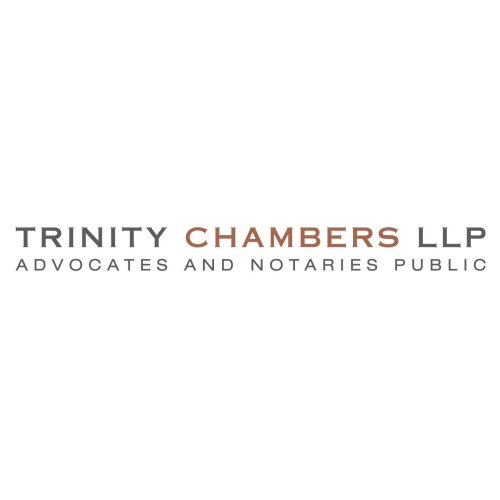Best Real Estate Lawyers in St Peter Port
Share your needs with us, get contacted by law firms.
Free. Takes 2 min.
Free Guide to Hiring a Real Estate Lawyer
List of the best lawyers in St Peter Port, Guernsey
About Real Estate Law in St Peter Port, Guernsey:
Real Estate law in St Peter Port, Guernsey, governs the buying, selling, leasing, and development of properties in the region. It covers a wide range of issues such as property rights, land use regulations, contracts, and disputes related to real estate transactions.
Why You May Need a Lawyer:
You may need a lawyer for real estate transactions to ensure that all legal aspects are properly handled. Common situations where legal help may be required include buying or selling property, resolving disputes with landlords or tenants, drafting or reviewing lease agreements, dealing with zoning or land use issues, and executing estate planning involving real estate.
Local Laws Overview:
In St Peter Port, Guernsey, real estate transactions are governed by a mix of local laws and regulations. Some key aspects include property taxes, planning permission requirements, landlord and tenant rights, and environmental regulations. It is essential to be aware of these laws when dealing with real estate matters in the region.
Frequently Asked Questions:
1. Can a foreigner buy property in St Peter Port, Guernsey?
Yes, foreigners can buy property in St Peter Port, Guernsey, but certain restrictions may apply. It is advisable to seek legal advice before proceeding with a purchase.
2. What are the costs involved in buying property in St Peter Port, Guernsey?
Costs may include stamp duty, legal fees, survey fees, registration fees, and any applicable taxes. It is recommended to budget for these expenses when planning to buy property.
3. How can I resolve a dispute with my landlord in St Peter Port, Guernsey?
You can seek legal advice to understand your rights as a tenant and explore options for resolving the dispute, such as negotiation, mediation, or legal action if necessary.
4. Do I need planning permission for property renovations in St Peter Port, Guernsey?
Depending on the extent of the renovations and the property's location, you may need planning permission. It is advisable to check with the local planning authority or consult a lawyer to ensure compliance with regulations.
5. How can I protect my property rights in St Peter Port, Guernsey?
You can protect your property rights by ensuring proper documentation of ownership, maintaining the property according to regulations, and seeking legal advice in case of any disputes or legal issues.
6. What are the legal obligations of a landlord in St Peter Port, Guernsey?
Landlords have obligations such as providing a safe and habitable property, maintaining the property in good condition, respecting tenants' rights, and adhering to rental agreements. Failure to comply with these obligations may lead to legal consequences.
7. How can I transfer property ownership in St Peter Port, Guernsey?
Property ownership can be transferred through a sale, gift, or inheritance. It is crucial to follow legal procedures, including documentation, registration, and payment of any applicable fees or taxes.
8. What are the steps involved in leasing commercial property in St Peter Port, Guernsey?
The steps may include drafting or reviewing the lease agreement, negotiating terms with the landlord, conducting property inspections, and ensuring compliance with local regulations. Legal advice can help in navigating these steps effectively.
9. How can I avoid real estate scams in St Peter Port, Guernsey?
To avoid scams, it is essential to conduct thorough research, verify the legitimacy of the property and parties involved, seek legal advice before signing any agreements, and be cautious of deals that seem too good to be true.
10. What are the consequences of non-compliance with real estate laws in St Peter Port, Guernsey?
Non-compliance with real estate laws may result in fines, legal disputes, property confiscation, or other legal consequences. It is crucial to adhere to regulations and seek legal advice to prevent such issues.
Additional Resources:
For additional resources and information related to real estate in St Peter Port, Guernsey, you can consult the Guernsey Financial Services Commission (GFSC) and the States of Guernsey's Planning Service. These organizations provide valuable guidance and support for individuals involved in real estate transactions.
Next Steps:
If you require legal assistance in real estate matters in St Peter Port, Guernsey, it is advisable to consult a qualified real estate lawyer who is familiar with local laws and regulations. They can provide expert advice, represent your interests, and help you navigate complex legal issues effectively. Contact a lawyer today to ensure that your real estate transactions are handled with care and diligence.
Lawzana helps you find the best lawyers and law firms in St Peter Port through a curated and pre-screened list of qualified legal professionals. Our platform offers rankings and detailed profiles of attorneys and law firms, allowing you to compare based on practice areas, including Real Estate, experience, and client feedback.
Each profile includes a description of the firm's areas of practice, client reviews, team members and partners, year of establishment, spoken languages, office locations, contact information, social media presence, and any published articles or resources. Most firms on our platform speak English and are experienced in both local and international legal matters.
Get a quote from top-rated law firms in St Peter Port, Guernsey — quickly, securely, and without unnecessary hassle.
Disclaimer:
The information provided on this page is for general informational purposes only and does not constitute legal advice. While we strive to ensure the accuracy and relevance of the content, legal information may change over time, and interpretations of the law can vary. You should always consult with a qualified legal professional for advice specific to your situation.
We disclaim all liability for actions taken or not taken based on the content of this page. If you believe any information is incorrect or outdated, please contact us, and we will review and update it where appropriate.
Browse real estate law firms by service in St Peter Port, Guernsey
St Peter Port, Guernsey Attorneys in related practice areas.











